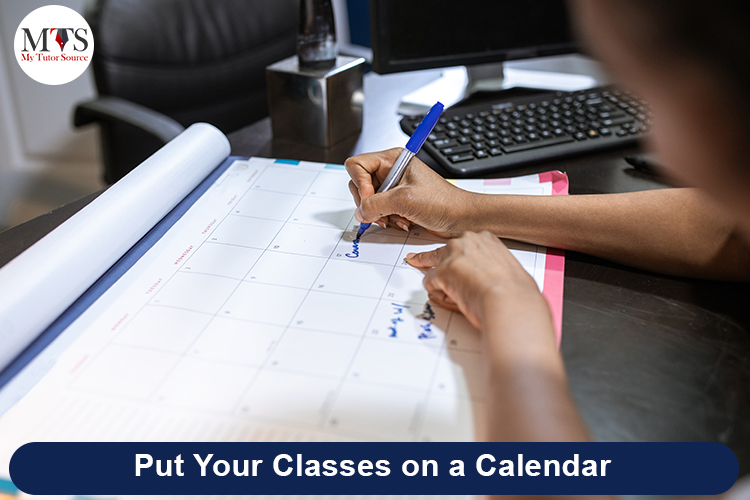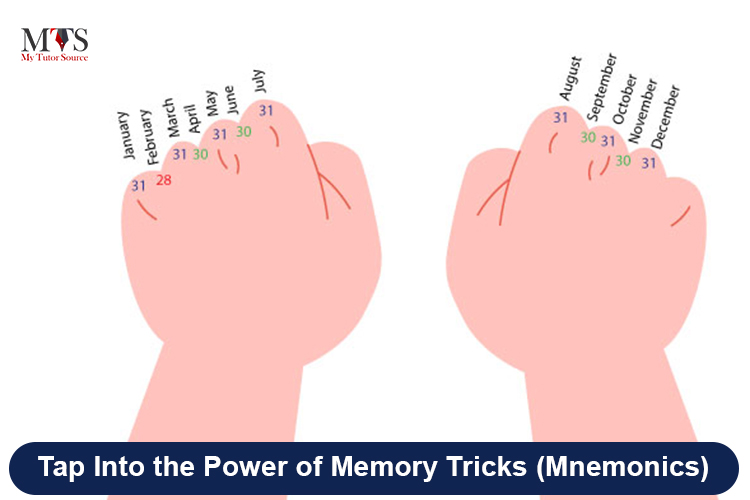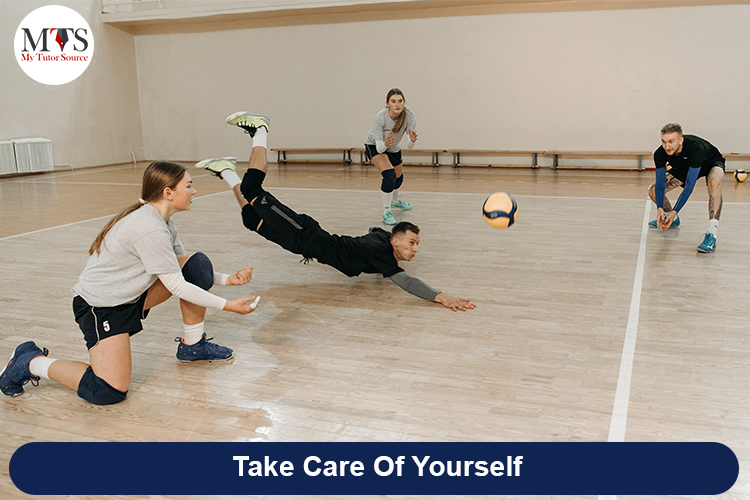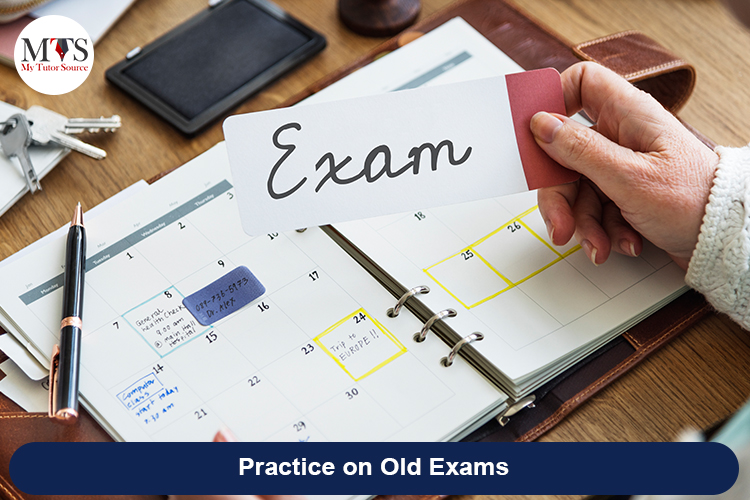

Though you’ve most likely been studying ever since you were a kindergarten student, have you ever taken a moment to stop and think about the way you study?
With a little thinking, you’ll realize that you can improve the way you study and ace your semesters. However, we know you’re busy enough already without joining another class to learn how to study for a test. To save your precious time, we have compiled the best study tips for you to excel in your academic career.
So, without further ado, let’s take a look at the best study tricks out there. We hope these exam preparation tips will make your study time more effective, enjoyable, and efficient:
Have you ever missed an important class discussion, quiz, presentation, or lecture just because you couldn’t keep up with your schedule and forgot which class you had?
There is an easy but effective solution for that – put your classes on your phone’s calendar as a recurring event. However, keep an eye on any changes happening to your class schedule and keep your calendar updated accordingly.

Where do you usually study when you prepare for test? The library, your dorm room, bed, or the park? The place you study affects your memory retention more than you think. A dedicated study space can help you stay away from distractions and let your brain know that it’s time to learn.

Find a space that helps you concentrate for long periods, is distraction-free, and has all the supplies you need. The details can vary based on your personal preferences. You might prefer quiet and isolation and your friend might like someplace crowded with background noise, e.g. the library and a coffee shop, respectively.
Remember to take small breaks when studying. Doing so has several benefits. Taking breaks keeps a study session effective, gives the mind some time to rest and recharge, stretch and move your body to get your blood flowing, and keeps the mind from losing focus.

Most importantly, taking a small break can provide your unconscious mind an opportunity to work on difficult problems. So, when you take a break, percolate a tough question to the back of your mind, and you’ll be surprised at how obvious the solution will look after you return to studying.
How often do you take notes on a paper when reading or studying? It may look like a lot of extra work to do, but taking notes as you read will save you a considerable amount of time in the long run. Plus, it will also make you engage with the study material, thus, helping you internalize the information deeper than by looking at the words.

Consulting teachers during office hours can be great but when studying for difficult exams, it may not be enough. For example, if you are preparing for a difficult exam such as the GRE exam, then just one professor’s help won’t cut it. For such a case, your best bet is a tutoring service or your college’s learning center.
Using these resources won’t make you less competent or intelligent; on the contrary, it would be stupid to take benefit of the resources available to you.

Music is an extremely powerful tool when it comes to increasing one’s focus. However, the key lies in choosing the right kind of music which partly depends on experimentation and preference,
Someone might find classical music to be an effective focus tool, while you might find it sleepy. Likewise, you might prefer heavy metal, while someone else might find it distracting. To find your best fit, listen to different genres and see what works the best for you.
And if you find music distracting, then don’t listen to it while studying as there’s no hard and fast rule.

Mnemonic is just a fancy term for memory tricks made to link things together to simplify them for the brain. This is one of the best tips to study better because it actually works. Mnemonics work surprisingly well for auditory learners.
For example, acrostics. An acrostic is a catchy line containing the same initials as the words you need to memorize.
Example: “My Very Eager Mother Just Served Us Nine Pizzas” is an acrostic used to memorize the order of the planets: Mercury, Venus, Earth, Mars, Jupiter, Saturn, Uranus, Neptune, Pluto.
So, learning just a few mnemonics can help you plow through difficult quizzes that may come up in your career.

What’s better than both a nap and a coffee to increase focus?
A coffee nap!
If you feel sleepy while studying, then you need to take a coffee nap. Have a cup of coffee, and hit the hay for 20 minutes at maximum, and oddly enough, when you wake up, you’ll be bushy-tailed and bright-eyed. Coffee naps help to prepare for memory tests and lessen the number of errors you make.
So, even though coffee and a nap may sound weird together, give it a try when you need a fix for your sleepiness.

Everyone has a different preferred learning style. Discover your way of learning that you’re most comfortable with and study in that way. These are some ways of learning that you can experiment with to see which one suits you the best:

You’ll study better if you look after your health. Make sure to get enough sleep, eat well, and do some physical exercise. Don’t entice yourself with unhealthy rewards such as fatty or sugary snacks just to motivate yourself for an all-nighter. Instead, entice yourself with healthy snacks and drink lots of water when studying.

College-level classes or difficult exams often have topics that you have never come across before. This could be a difficult subject or a new topic from an advanced book. Regardless, you may find yourself over-thinking, that you must be stupid to not know about that stuff.
This mindset is extremely negative and flawed. Just because you don’t know about some things, doesn’t mean you are incompetent. Rather, it just means that you are advancing to better study levels and need some time and effort to understand the topic better.
To study and understand better, keep your mindset positive. View difficult topics as a part of your learning journey, instead of a measure of your intelligence.

Planning your time will help you make the most of your study time. Some study tricks you can apply include:

One of the most effective techniques to prepare yourself for upcoming exams is to practice on mock tests and past versions of exams. This way you get familiarized with the format of the questions, and you are also able to manage your time for the upcoming test. The latter, especially, comes in handy for exams where you are in a time crunch.
These practice tests also help you remember information more efficiently and score more than a full letter grade. Most importantly, mock tests are the best way to recall study materials even weeks later.

Do not underestimate the importance of taking a rest when studying. Have you ever noticed how all-nighters end up making you so forgetful, and super fatigued?
That’s because you have missed out on a lot of sleep the night before, which is critical to converting short-term memory into long-term memory. Remember that studying is a marathon, and it is not a sprint. Therefore, your actual goal is to understand what you study and then retain that information, so it serves you well in the future – both on the exam day and in practical life. Thus, do not neglect your sleep. Don’t worry if you’re behind on a project, taking some time to sleep will let you have a go at it again with a fresh mind.

Tips to study better can never replace the hard work required to study!
There are a lot of different tricks you can use to study more effectively, no matter what your classes or your major are. However, don’t overlook the importance of hard work. Our study tips will help you increase your focus, study better and smarter while saving your time.
But they are not some magic pills, to learn everything immediately, or substitutes for working. At the end of the day, you still need to invest your time and work hard to achieve your goals. But we hope that our study tips help you to have a productive study session.
Now, go and open them books!